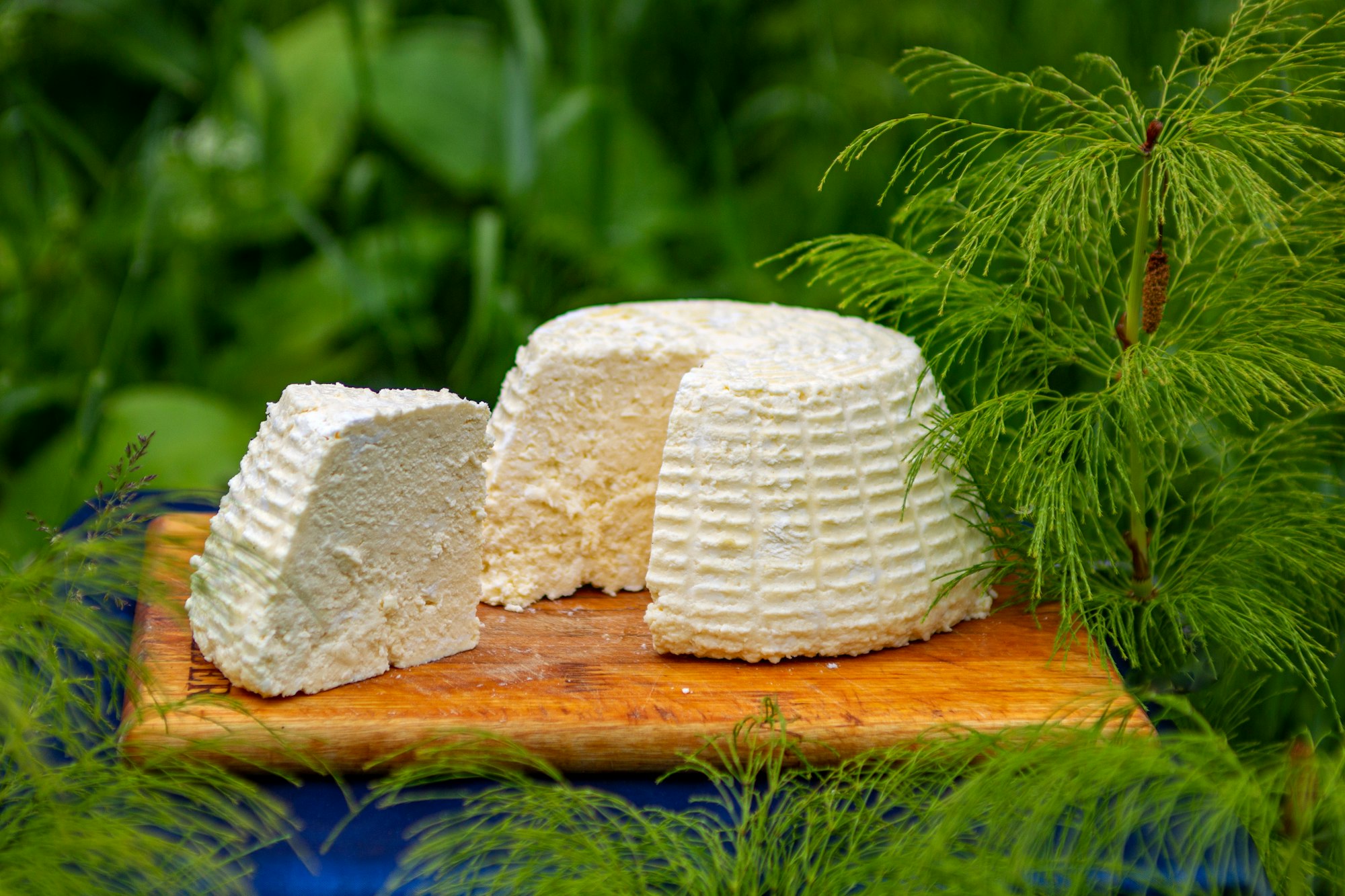Maltese dogs are adorable, affectionate, and often treated as part of the family. As a responsible pet owner, it's important to ensure that you are providing your Maltese with a balanced diet that meets their nutritional needs. However, when it comes to cheese, you may be wondering if it's safe to share this tasty treat with your furry friend.
Nutritional Benefits of Cheese for Dogs

Cheese is a dairy product that contains essential nutrients such as protein, calcium, and vitamins. These nutrients are beneficial for dogs, as they help support healthy bones, teeth, and muscle development. However, it's important to note that not all types of cheese are created equal when it comes to nutritional content.
Some cheeses, such as cheddar and mozzarella, are lower in lactose compared to other varieties. This makes them easier for dogs to digest, especially for those who are lactose intolerant. Additionally, cheese can be a great source of protein for dogs, which is essential for their overall health and well-being.
While cheese can provide some nutritional benefits for dogs, it should not be considered a staple in their diet. It should be given in moderation and as an occasional treat, rather than a regular part of their meals. This is to ensure that your Maltese is receiving a balanced diet that meets all of their nutritional needs.

Risks and considerations of feeding cheese to Maltese dogs
Although cheese can be a tasty snack for dogs, it's important to be aware of the risks and considerations before feeding it to your Maltese. One of the main concerns is the lactose content in cheese. Lactose is a sugar found in milk and dairy products, and some dogs have difficulty digesting it.
Maltese dogs, like other toy breeds, are more prone to lactose intolerance. This means that their bodies may not produce enough lactase, the enzyme needed to break down lactose. Feeding cheese to a lactose-intolerant Maltese can result in digestive issues such as diarrhea, gas, and stomach upset.
Another consideration is the type of cheese you choose to feed your Maltese. Some cheeses, such as blue cheese or those with added seasonings or herbs, can be harmful to dogs. These varieties may contain ingredients that are toxic to dogs or can cause allergic reactions. It's important to stick to plain, mild cheeses that are safe for dogs.
Moderation and portion control when feeding cheese to Maltese dogs
When it comes to feeding cheese to your Maltese, moderation is key. While small amounts of cheese can be given as an occasional treat, it's important not to overdo it. Cheese should never make up a significant portion of your dog's diet, as it can lead to weight gain and other health issues.
To ensure that you are giving your Maltese the right portion size, it's important to consider their size, age, and activity level. Smaller dogs, like Maltese, require smaller portions compared to larger breeds. It's best to consult with your veterinarian to determine the appropriate portion size for your Maltese based on their individual needs.
Additionally, it's important to consider the calorie content of cheese. Cheese is often high in fat and calories, which can contribute to weight gain. If your Maltese is overweight or prone to weight gain, it's best to limit their cheese intake even further or opt for low-fat cheese options.
Alternative options to cheese for Maltese dogs
If you're concerned about the risks or prefer to avoid feeding cheese to your Maltese, there are alternative options available. Many pet stores offer a variety of dog-friendly treats that mimic the taste and texture of cheese. These treats are specifically formulated for dogs and are a safer alternative to feeding them human cheese.
Additionally, there are other healthy and safe food options that you can offer your Maltese as treats. Fruits and vegetables such as apples, carrots, strawberries, and blueberries can be a great alternative to cheese. These options provide additional nutritional benefits and are low in calories.
When introducing new treats or foods to your Maltese, it's important to do so gradually. Start by offering small amounts and monitor your dog for any adverse reactions. If your Maltese shows signs of allergies or digestive issues, discontinue the new treat and consult with your veterinarian.
How to introduce cheese into a Maltese dog's diet
If you decide to introduce cheese into your Maltese's diet, it's important to do so in a safe and controlled manner. Start by choosing a mild, low-lactose cheese such as cheddar or mozzarella. Avoid cheeses with added seasonings, herbs, or spices that may be harmful to dogs.
Begin by offering a small piece of cheese as a treat and observe your Maltese for any adverse reactions. Keep in mind that some dogs may have a sensitive stomach or be more prone to digestive issues. If your Maltese shows any signs of discomfort or digestive upset, it's best to discontinue feeding them cheese.
As with any new food, it's important to introduce cheese gradually. Start by offering a small amount and gradually increase the portion size over time. This allows your Maltese's digestive system to adjust to the new food and reduces the risk of digestive upset.
Signs of lactose intolerance in Maltese dogs
Lactose intolerance is relatively common in dogs, especially in certain breeds such as Maltese. It occurs when a dog's body does not produce enough lactase, the enzyme needed to break down lactose. If your Maltese is lactose intolerant, feeding them cheese can result in digestive issues and discomfort.
Signs of lactose intolerance in dogs include diarrhea, gas, bloating, and stomach upset. If you notice any of these symptoms after feeding your Maltese cheese, it's best to discontinue the treat and consult with your veterinarian. They can provide guidance on managing your dog's lactose intolerance and suggest alternative options for treats.
Cheese-based treats for Maltese dogs

If your Maltese tolerates cheese well and enjoys the taste, you may consider using cheese-based treats as a training reward or occasional snack. There are many recipes available online for homemade cheese treats that are specifically designed for dogs. These treats can be a fun and healthy way to incorporate cheese into your Maltese's diet.
When making homemade treats, it's important to use dog-friendly ingredients and avoid adding any harmful seasonings or spices. Stick to simple recipes that include cheese as the main ingredient, and consider using low-lactose or lactose-free cheese options.
Maltese Diet Plan
Crafting a well-balanced diet for your Maltese dog is essential to ensure they lead a healthy and happy life. Here's a comprehensive diet plan to guide you in meeting your Maltese's nutritional needs:
High-Quality Dog Food: Start with a high-quality commercial dog food that is specifically formulated for small breeds. Ensure the first ingredient is a quality source of animal protein.
Protein Content: Maltese dogs thrive on a diet with a moderate protein content. Look for dog food that contains around 18-25% protein to support their muscle development.
Healthy Fats: Incorporate healthy fats into your Maltese's diet for energy and coat health. Look for dog food with omega-3 and omega-6 fatty acids.
Limited Fillers: Avoid dog foods with excessive fillers like corn or soy, as Maltese dogs may have sensitivities. Opt for options with whole ingredients.
Small, Frequent Meals: Maltese dogs have small stomachs. Provide them with smaller, more frequent meals throughout the day to aid digestion and prevent overeating.
Fresh Water: Always ensure your Maltese has access to fresh, clean water. Proper hydration is crucial for their overall well-being.
Avoid Human Food: While it's tempting to share your meals with your furry friend, certain human foods can be harmful. Avoid feeding them chocolate, onions, garlic, and other toxic items.
Incorporate Vegetables: Add small amounts of dog-friendly vegetables like carrots or green beans to provide additional vitamins and minerals.
Limit Treats: While treats can be part of their diet, it's crucial not to overindulge. Keep treats to a minimum and consider healthier alternatives.
Regular Exercise: A well-rounded diet should complement regular exercise. Maltese dogs enjoy short walks and playtime to stay fit and maintain a healthy weight.
Vet Check-ups: Schedule regular vet check-ups to monitor your Maltese's health and discuss any dietary adjustments based on their specific needs.
Special Dietary Requirements: If your Maltese has specific health issues or dietary requirements, consult with your veterinarian to create a customized diet plan.
Homemade Treats: Consider making homemade treats occasionally, ensuring they align with your Maltese's dietary needs. Simple recipes with dog-friendly ingredients can be a delightful addition.
Balanced Nutrients: Strive for a diet that provides a balance of essential nutrients, including proteins, carbohydrates, fats, vitamins, and minerals.
Monitor Weight: Regularly monitor your Maltese's weight. Adjust their diet if needed to maintain a healthy weight and prevent obesity-related health issues.
By following this comprehensive diet plan, you can contribute to the overall well-being of your Maltese companion, ensuring they receive the nutrients necessary for a long, happy, and healthy life.

Consultation with a veterinarian before feeding cheese to Maltese dogs
Before introducing cheese or any new food into your Maltese's diet, it's always best to consult with your veterinarian. They can provide personalized recommendations based on your dog's specific needs and dietary restrictions. Your veterinarian will be able to assess any potential risks or concerns and guide you in making informed decisions about your Maltese's diet.
They may recommend alternative treats or provide guidance on portion sizes and frequency of cheese feeding. Additionally, they can help you identify any signs of lactose intolerance or other digestive issues in your Maltese and suggest appropriate dietary adjustments.
Conclusion
In conclusion, while cheese can be a delicious snack for humans, it's important to approach feeding cheese to your Maltese dogs with caution. While small amounts of cheese can be given as an occasional treat, it's essential to consider a few factors.
The lactose content in cheese can be difficult for dogs to digest, especially for those who are lactose intolerant. Additionally, certain types of cheese, such as blue cheese or those with added seasonings or herbs, can be harmful to dogs.
To ensure the safety and well-being of your Maltese, it's always best to consult with your veterinarian before introducing cheese or any new food into their diet. They can provide personalized recommendations based on your dog's specific needs and dietary restrictions.
Remember, a balanced diet is crucial for the overall health and happiness of your Maltese. Treats, including cheese, should be given in moderation and should not replace their regular meals. By prioritizing their health and consulting with a professional, you can make informed decisions about their diet and ensure they live a long and healthy life.

FAQs
- Q1: Can all types of cheese be given to Maltese dogs?
- A: Not all types of cheese are safe. Consult your vet to determine which cheeses are suitable for your Maltese.
- Q2: How much cheese is too much for a Maltese dog?
- A: Moderation is key. Small amounts can be given as an occasional treat, but excessive consumption can lead to health issues.
- Q3: Are there alternative treats for Maltese dogs besides cheese?
- A: Yes, there are various healthy alternatives such as fruits, vegetables, and lean meats that make excellent treats.
- Q4: What signs indicate that my Maltese is allergic to cheese?
- A: Look out for symptoms like itching, vomiting, or diarrhea. If any adverse reactions occur, consult your vet immediately.
- Q5: Is it necessary to consult a vet before introducing cheese to my Maltese's diet?
- A: Yes, consulting your veterinarian ensures that the introduction of cheese aligns with your dog's specific health needs and dietary requirements.




